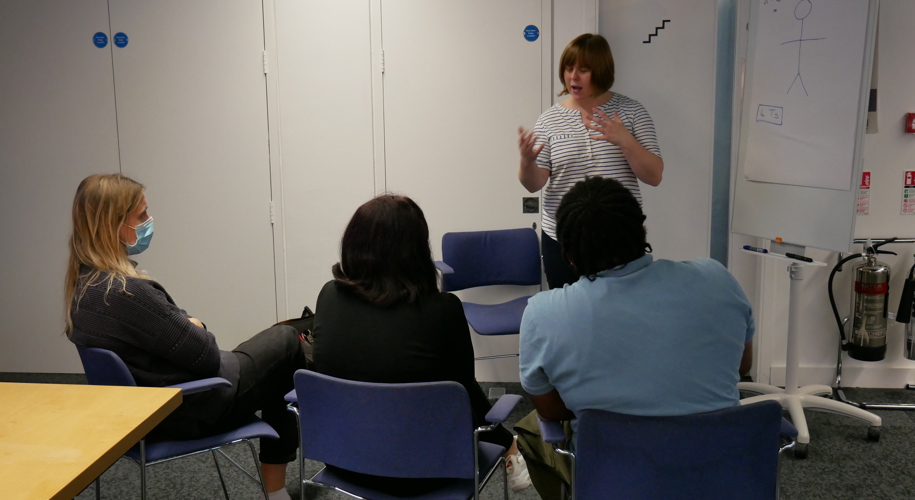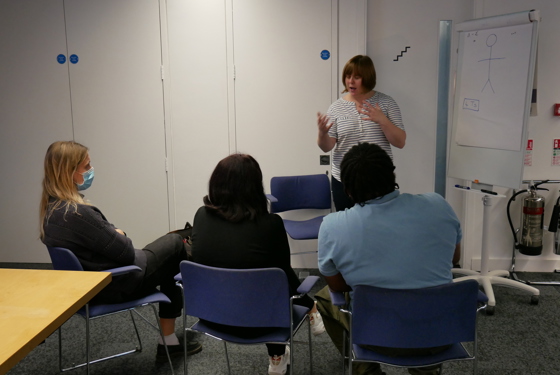You’ll need to have an induction interview at the beginning of a new post to set objectives, and subsequent appraisals to track your progress. This page sets out what you should expect and how to prepare.
Induction
You should meet with your Educational Supervisor within 2 weeks of starting a new post. Before this meeting, you must complete the front section of the induction/appraisal form in your ePortfolio.
Preparing for your induction
You’ll get the most out of your placement in any unit if you know what you want to achieve and ask the people who work there to help you achieve it. The induction interview allows you to do this. To prepare for your induction:
- Make contact to arrange your induction interview in advance of your start date. This is especially important if you’re rotating during a holiday period, as your Educational Supervisor may be away when you start, in which case you might prefer to have your induction or an informal meeting before your first day.
- Ensure you have all the relevant information from your previous posts ready for the induction. If some of the information is complex, it might be helpful to give your Educational Supervisor time to read it before your induction meeting.
- If this isn’t your first post, review your last assessment and list your objectives for your next placement.
- Review the logbook and training material and list your own objectives (don’t forget audits, publications and reflective learning)
- Look at relevant websites, such as this one and your deanery’s site, for relevant information that you want to discuss.
- Complete the relevant sections of the induction form.
The induction meeting
At your induction, you should:
- Review your eLogbook and current competencies
- Set achievable goals for further progress
- Identify additional educational objectives, e.g. audit projects and study leave, and set realistic timescales for completion
You’ll need to record this meeting on the induction/appraisal form in your ePortfolio.
Appraisals
After your induction, you should meet with your Educational Supervisor at least twice more (at 4 and 8 months) to ensure you’re making satisfactory progress and are on track to achieve your educational objectives. Your appraisal meeting is an important component of your learning, collating past achievement and planning future progress. The appraisal meeting isn’t a formal assessment, so you must deal with any health or serious conduct issues outside of the appraisal process in dedicated meetings.
Preparing for your appraisal
Appraisal is an active process and it’s important that you engage with it. To prepare for your appraisal:
- Make sure you keep your ePortfolio up to date and orderly, and use your ePortfolio and the curriculum to plan your next stage of learning
- Think about the various requirements of training: knowledge, skills and attitude
- Think about any obstacles to your progress and how these might be addressed
- Collate the relevant evidence and documentation of your progress and achievements
- Set an agenda of points you’d like to cover
The appraisal meeting
At the appraisal meeting:
- Be prepared to value your successes explicitly and to discuss tough issues thoroughly
- Accentuate the positive but have a critical and constructive approach to progression
- Set SMART goals:
- Specific (clearly defined; clear aims for a particular time period)
- Measurable (divided into components so progress against each component can be monitored)
- Achievable (be realistic, to avoid a sense of failure and/or despondency)
- Relevant (stay focused on the curriculum and its requirements, including the training matrix of educational progression
- Time-bound (agree a time period for anticipated achievement)
You’ll need to note the dates of your appraisals and record the discussion on the induction/appraisal form in your ePortfolio.
Remember that appraisal meetings are confidential but not legally privileged, and any issues that raise safety concerns for patients and trainees may be disclosed.
Find out more
More information about the appraisal process is available in the Gold Guide.


Curriculum
The complete specialty training curriculum for O&G – core, ultrasound, ATSMs, subspecialty and academic


MRCOG exams
Information on how to prepare for the Part 1 and Part 2 MRCOG
